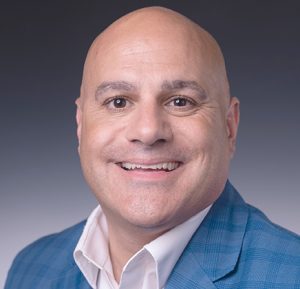Dear Rusty: I retired from working last June but will not sign up for Social Security until age 70 and, to do that, I plan to draw from my IRA for the next three years. My wife is receiving Social Security disability benefits and will reach her full retirement age (FRA) this March. I know that my wife simply reaching her FRA will not mean an increase to her benefit — except for the cost-of-living adjustment (COLA). What I’m wondering is, can my wife receive spousal benefits of any sort based on my Social Security benefits — either before I draw or after I am drawing — apart from her benefits at my death? Her Social Security disability amount is only a fraction of my maximum benefit.
Signed: Baffled Husband
Dear Baffled: Looks like you’re confused about your wife’s Social Security disability benefits, retirement benefits, spousal benefits, and survivor benefits. Here’s what you need to know.
(Sponsored)

10 Reasons Your Business Needs Cyber Insurance
1. Cyber crime is the fastest growing crime in the world, but most attacks are not covered by standard property or crime insurance policies. New crimes are emerging every day.

National Labor Relations Board Bans “Captive Audience” Meetings
Since 1948, the National Labor Relations Board respected an employer’s right to hold mandatory paid employee meetings during company time so that its views about unionization could be directly communicated
When your wife reaches her FRA next year, her current Social Security Disability Insurance (SSDI) benefit will automatically convert to become her regular Social Security retirement benefit at the same amount she was receiving on SSDI (disability). The amount stays the same because your wife’s SSDI amount is based on her FRA entitlement.
Your wife cannot receive any spousal benefits from you until you claim your own Social Security retirement benefit. Since you plan to delay claiming until you are age 70, several years from now, after your wife’s SSDI converts to become her regular retirement benefit at her FRA next year, she will continue to receive her own Social Security retirement benefit until you claim. At that point your wife will get a “spousal boost” added to her own retirement benefit. The amount of her spousal boost will be the difference between her FRA entitlement (same as her SSDI amount), and 50 percent of your FRA entitlement (not half of your age 70 amount — spouse benefits are always calculated using FRA amounts, regardless of when Social Security is actually claimed).
Your wife cannot get a spousal benefit from you until you start your Social Security, but after you claim she will receive her higher spousal benefit (her own Social Security retirement benefit plus a spousal boost) for the rest of her life, or until you predecease her. If you die first, your wife will receive 100 percent of the amount you were receiving at your death (e.g., your age 70 amount), instead of the smaller amount she was receiving as your spouse while you are both living.
Regarding COLA, after becoming eligible for benefits, everyone gets the annually awarded COLA increase whether they are already collecting Social Security benefits or not. The latest annual COLA increase was added to your wife’s SSDI at the end of this past year and will be added to her SS retirement amount each year thereafter, and then to her higher amount as your spouse after you claim. And even though you are waiting until age 70 to claim, the annual COLA will still be added to your primary insurance amount (PIA) each year, and you will receive that past COLA in your monthly payments after you later claim.
Russell Gloor is a national Social Security advisor at the AMAC Foundation, the nonprofit arm of the Association of Mature American Citizens (AMAC). The 2.4-million-member AMAC says it is a senior advocacy organization. Send your questions to: ssadvisor@amacfoundation.org.
Author’s note: This article is intended for information purposes only and does not represent legal or financial guidance. It presents the opinions and interpretations of the AMAC Foundation’s staff, trained and accredited by the National Social Security Association (NSSA). The NSSA and the AMAC Foundation and its staff are not affiliated with or endorsed by the Social Security Administration or any other governmental entity.



